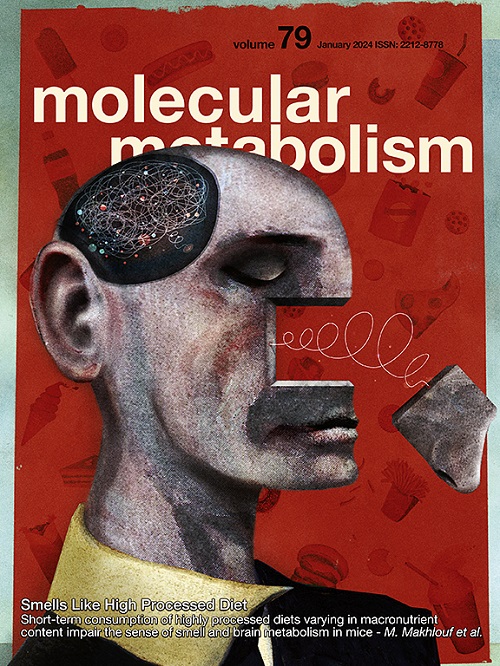营养物质对剪接位点选择的控制有助于蛋氨酸致癌。
IF 7
2区 医学
Q1 ENDOCRINOLOGY & METABOLISM
引用次数: 0
摘要
本文章由计算机程序翻译,如有差异,请以英文原文为准。
Nutrient control of splice site selection contributes to methionine addiction of cancer
Objective
Many cancer cells depend on exogenous methionine for proliferation, whereas non-tumorigenic cells can divide in media supplemented with the metabolic precursor homocysteine. This phenomenon is known as methionine dependence of cancer or methionine addiction. The underlying mechanisms driving this cancer-specific metabolic addiction are poorly understood. Here we find that methionine dependence is associated with severe dysregulation of pre-mRNA splicing.
Methods
We used triple-negative breast cancer cells and their methionine-independent derivatives R8 to compare RNA expression profiles in methionine and homocysteine growth media. The data set was also analyzed for alternative splicing.
Results
When tumorigenic cells were cultured in homocysteine medium, cancer cells failed to efficiently methylate the spliceosomal snRNP component SmD1, which resulted in reduced binding to the Survival-of-Motor-Neuron protein SMN leading to aberrant splicing. These effects were specific for cancer cells as neither Sm protein methylation nor splicing fidelity was affected when non-tumorigenic cells were cultured in homocysteine medium. Sm protein methylation is catalyzed by Protein Arginine Methyl Transferase 5 (Prmt5). Reducing methionine concentrations in the culture medium sensitized cancer cells to Prmt5 inhibition supporting a mechanistic link between methionine dependence of cancer and splicing.
Conclusions
Our results link nutritional demands to splicing changes and thereby provide a link between the cancer-specific metabolic phenomenon, described as methionine addiction over 40 years ago, with a defined cellular pathway that contributes to cancer cell proliferation.
求助全文
通过发布文献求助,成功后即可免费获取论文全文。
去求助
来源期刊

Molecular Metabolism
ENDOCRINOLOGY & METABOLISM-
CiteScore
14.50
自引率
2.50%
发文量
219
审稿时长
43 days
期刊介绍:
Molecular Metabolism is a leading journal dedicated to sharing groundbreaking discoveries in the field of energy homeostasis and the underlying factors of metabolic disorders. These disorders include obesity, diabetes, cardiovascular disease, and cancer. Our journal focuses on publishing research driven by hypotheses and conducted to the highest standards, aiming to provide a mechanistic understanding of energy homeostasis-related behavior, physiology, and dysfunction.
We promote interdisciplinary science, covering a broad range of approaches from molecules to humans throughout the lifespan. Our goal is to contribute to transformative research in metabolism, which has the potential to revolutionize the field. By enabling progress in the prognosis, prevention, and ultimately the cure of metabolic disorders and their long-term complications, our journal seeks to better the future of health and well-being.
 求助内容:
求助内容: 应助结果提醒方式:
应助结果提醒方式:


